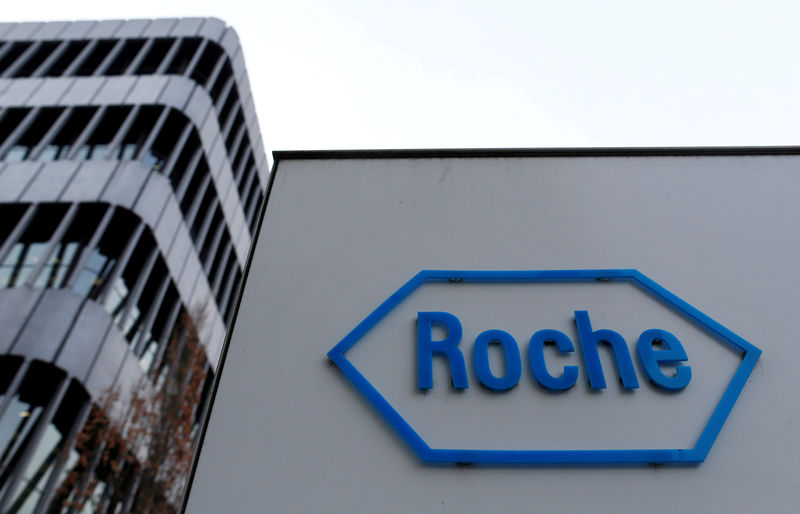By John Miller
ZURICH (Reuters) - Scientists at Swiss drugmaker Roche said on Friday they may have discovered why some tumours resist new immunotherapy drugs as well as a possible means of turning the tables to incite a T-cell attack.
The company has been analysing biomarkers in 300 patients from its Imvigour 210 bladder cancer study to learn more about those who did not respond to its Tecentriq treatment, it said at the European Society for Medical Oncology meeting in Geneva.
Its doctors now believe some tumours that express high levels of a protein called TGF-beta develop a fortified wall. T-cells stick as if to "Velcro," the adhesive hook and loop fastener common on clothing, and fail to get inside, they said.
Using a mouse model, they described how they then combined anti-TGF-beta agents with Tecentriq to help keep T cells from getting hung up.
"T cells penetrated into the centre of the tumour, and the tumour reduced in size," said Sanjeev Mariathasan, a senior scientist at Roche's Genentech unit in San Francisco.
Mariathasan said cancers including lung, pancreatic and colorectal exhibit similar T-cell resistant traits, so such a combination could be tested in those, as well.
Tecentriq, approved for bladder cancer and second-line lung cancer treatment, is a key part of Roche Chief Executive Severin Schwan's plans to replace waning sales of older drugs with new medicines.
On Thursday, Roche released data showing Tecentriq added to older drugs doubled the percentage of lung cancer patients who survived a year without disease progression, part of efforts to expand approvals to earlier treatment.
But while so-called "checkpoint inhibitors" like Tecentriq, Keytruda from Merck (NYSE:MRK) and Opdivo from Bristol-Myers Squibb have produced durable responses in some cancer sufferers, they are only effective in a fraction of patients.
Consequently, researchers are feverishly seeking to understand why they fail in 70-80 percent of the time.
"It is key to identify the factors that impede more generalised benefit," said Ignacio Melero, a professor at the Centre for Applied Medical Research (CIMA) in Pamplona, Spain, who reviewed Roche's analysis.
He said its insights offer a potential new approach in helping the immune system fight cancer.
"Perhaps we can identify, by means of gene signatures, a fraction of patients in whom TGF-beta is the dominant mechanism and focus on synergistic combinations" to help overcome disease resistance, he said.
BETTER AGENTS NEEDED
Even so, Melero said much work remains given that anti-TGF-beta agents have so far stumbled on efficacy or safety concerns, despite years of study for their potential in cancer therapy.
"Better anti-TGF-beta agents need to be developed for use in combination with immunotherapy agents," he said.
